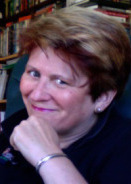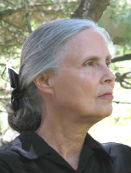Interview on Writing Your Memoir - Part 4
In Part 4 of our conversation about writing your memoir, authors Matilda Butler and Kendra Bonnett from WomensMemoirs.com talk about the ethical issues that memoirists sometimes face. Click here to return to Part 1 of our conversation.
A Conversation with Kendra Bonnett and Matilda Butler: Ethical Issues In Memoir Writing
Creative Writing Now: What kinds of ethical issues come up when writing your memoir involves revealing private or potentially hurtful information about other people?
Matilda: Well, that’s another can of worms. We get asked that a lot. Kendra, do you want to start and then I’ll come in?
Advertisement:
Kendra: Well, I’ll start again from LinkedIn on our Women’s Memoirs site. And if you haven’t been on LinkedIn or if you are a member of LinkedIn, you could check out our Women’s Memoirs group. There are some interesting discussions. There is one going on right now where a woman is writing about some family members she had fallen out with—and this is what made me think about the admonition not to write a vindictive piece—everybody questioned her when she said, “You know, I am worried. Am I going to get sued when I write this?” And the first thing everybody asked her was, Why did you write this? Did you write this to hurt everybody? Because, if that’s the case, stop right now. And that was not her case and, in fact, she worked through most of the issues with the family members, and she told them what she was doing. But she was still very nervous because we live in a very litigious world, and generally our recommendation is to share it with them, let them read what you have done. Because it is one thing for you to say it is okay, and it’s another thing for them to actually see what you have done.
One person said that her publisher had asked her to get a release, a signed release, from each person. I had never heard that before, but it certainly isn’t a bad idea if you are going to go out on a limb at all. Jump in, Matilda, and I’m sure I will think of something else.

Matilda: There are a number of ways of handling it. Some people simply wait. If it was a case of abuse, they simply wait until that parent is dead. And there are other people who change the name of the person, and that also will take care of it.
These issues we’re talking about come at the end of the process. When you’re writing, I don’t think you should worry about that. As Kendra says, you shouldn’t be writing in order to be vindictive, but let’s say you had emotional or physical abuse, then, you can’t put on the censors and say, “Oh, I have to pretend it was someone else, or I have to change the name. Or, I’ll pretend that didn’t happen.” You go ahead and write in the true way, because the honesty has to come out of you. So, you write in that true and honest way, and then you can decide what to do.
You can decide to change the name of the person—and I know people that have done that. I know that one person was writing about her mother-in-law, who really had facilitated the dependencies in one of her children. And she finally went to her mother-in-law and said, “This is what I am saying and you know it’s the truth. That is what you did.” And the mother-in-law said, “Fine, just change my name.” And there are other people who are incredibly careful. And I know someone who was incredibly careful in the way she wrote about some family members to make sure she didn’t offend, and after it was published, they still became mad at her. In other words, you can’t start with this. You can’t start with this as the issue. You have to start with the story you need/want to tell. You tell that story, and then there’s always a way around it. There’s always some way. That’s what editing is for.
Kendra: That’s the editing process, and you can cut things out. You can get it out of your system and then decide it doesn’t really add to your story. And just decide to dump it. You need that exercise. If nothing else, it might be a healthy, healing process for you.
Matilda: Right, and if it takes one back to some kind of emotional or physical abuse, maybe you need to write all the details. We work with women who tell us it is very healing for them. But then, at the end, after you have done that, maybe what you want to talk about are the changes in your life and ways in which it affected you. And then you don’t need all the details. You don’t really need to be writing about the other person, because what you are talking about then is how you came to deal with that and, in fact, how did that change the way that you interact with other people.
There was a woman that we interviewed whose mother was in World War II and was so fearful she lived in the attic. Her mother had to go into hiding in Germany in World War II, and her whole family -- a very large family -- did. She therefore was very fearful, and that fear she actually instilled into her children. This was the daughter that was writing, and it made her sort of afraid of life—afraid to be adventuresome, afraid to do this or that because her Mother was always saying, “You have to call me, and I am going to walk with you because something might happen to you.” So there was always this fear, and then she realized in the writing of her memoir that she had, in fact, passed that fear on to her own daughter. So here was a three-generational effect of a war. And so you can tell in that case, the story is in what happened to all these people. Maybe one would write about some particulars, but in the final telling of the story, we don’t need to know all the terrible things, but what we do want to know is how did you manage. Because maybe something else terrible will happen to me, and it won’t be the same as what happened to you, but how does a person cope?
I think we read memoir because we want to know how did someone else manage? How do they do what they do? Whether it’s positive or whether it’s negative, we want to know —these are little mini-role models for us that we can call on when something happens in our life and we say, “Well, my situation is different than that, but wow, this is what she did, and I think I can do something similar.” I think that’s what is so powerful about memoirs. They have the power to influence other people’s lives.
Kendra: Related to all that -- and it comes back to what Matilda had said earlier -- is never, ever forget that this is about you. We often end up telling our students, “I can’t see you in this scene you just wrote.” We tend to tell the story, I guess, and just not get deep enough into ourselves, at first, until we get into the process, and then I think it becomes a much easier task. It just goes back to what Matilda was saying related to whether you actually need to tell the worst aspects of someone else in your story, because it really does comes back to you in the end anyway.
Read the next part of this conversation on writing your memoir.
(If writing your memoir brings up difficult personal issues, you can find counseling resources here.)
Writing Your Memoir - Next Steps
Click here to go to Part 5 of our conversation with Matilda Butler and Kendra Bonnett on writing your memoir.
Take our memoir writing course.
Read advice from author Heather Sellers on writing your memoir.
Get ideas for writing your memoir from this prompts page.
See all topics related to writing your memoir.
<< BACK from Memoir Interview to Creative Writing Now Home